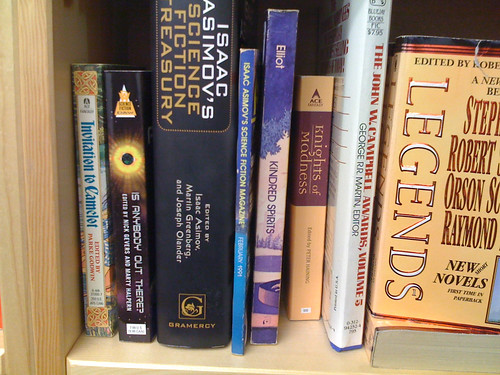It’s always necessary to remember that the fiction writer is much less immediately concerned with grand ideas and bristling emotions than he is with putting list slippers on clerks. -Flannery O’Connor, Mystery and Manners
In my last blog post, I meant to include this quote. (In fact, at one point I intended to call the post “Collecting List Slippers” in its honor.)
In context, O’Connor refers to Madame Bovary:
Sometimes she would draw; and it was great amusement to Charles to stand there bolt upright and watch her bend over her cardboard, with eyes half-closed the better to see her work, or rolling, between her fingers, little bread-pellets. As to the piano, the more quickly her fingers glided over it the more he wondered. She struck the notes with aplomb, and ran from top to bottom of the keyboard without a break. Thus shaken up, the old instrument, whose strings buzzed, could be heard at the other end of the village when the window was open, and often the bailiff’s clerk, passing along the highroad bare-headed and in list slippers, stopped to listen, his sheet of paper in his hand.
In yet further explanation, I proffer this link about the nature of list slippers, shoes made, sole and all, from fabric and thus very quiet to walk in. (Although in the quote above, I think their informality rather than their stealth is their primary characteristic.)
Okay, so obviously this quote needs a lot of unpacking, and perhaps it’s just as well that I left it out of the other post. But it also deserves more than the slight mention I’ve already given it — it’s a massively important point about writing made succinctly and pungently. I think of these list slippers every other day or so.
As everyone’s friend John Gardner writes in his Art of Fiction, “If we carefully inspect our experience as we read, we discover that the importance of physical detail is that it creates for us a kind of dream, a rich and vivid play in the mind.” As writers, we are trying to do so many things: amuse, inspire, impassion. But we have to see the small as well as the large. We build our castles in the air one brick at a time. Everything matters, from list slippers and the buzz of piano strings up to despair and delusion.
Everything matters. How could I not love that?






